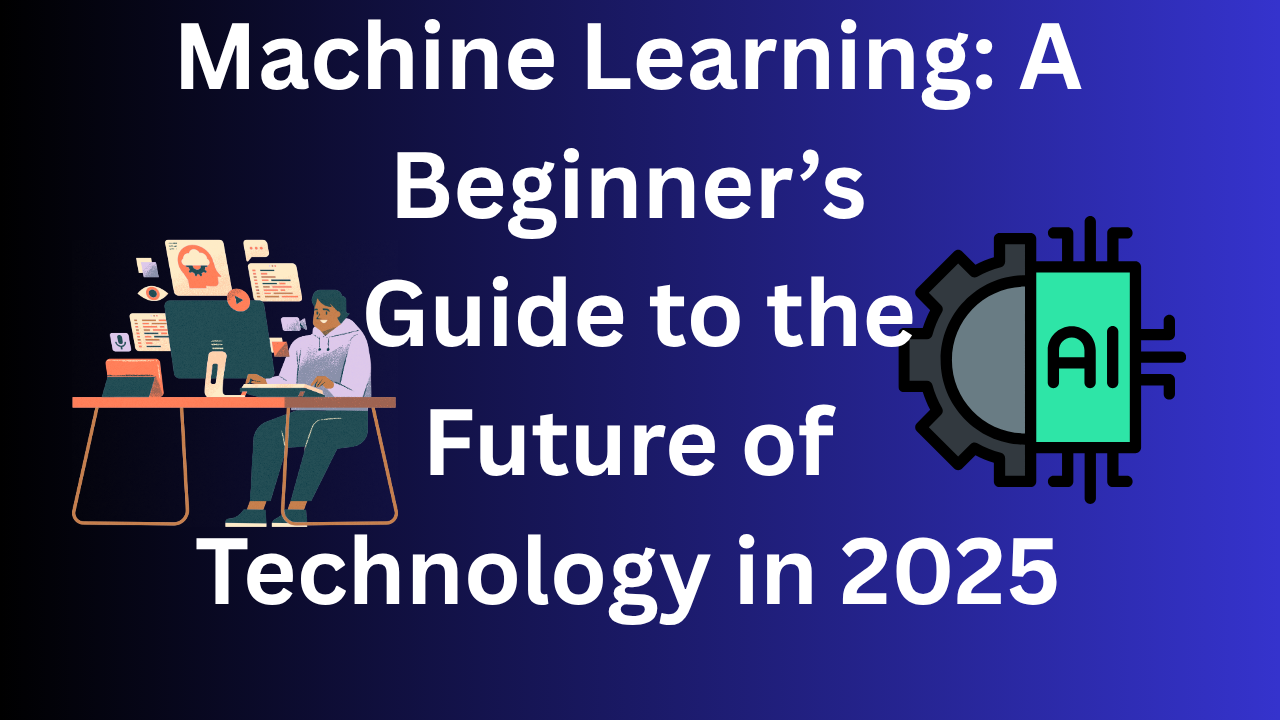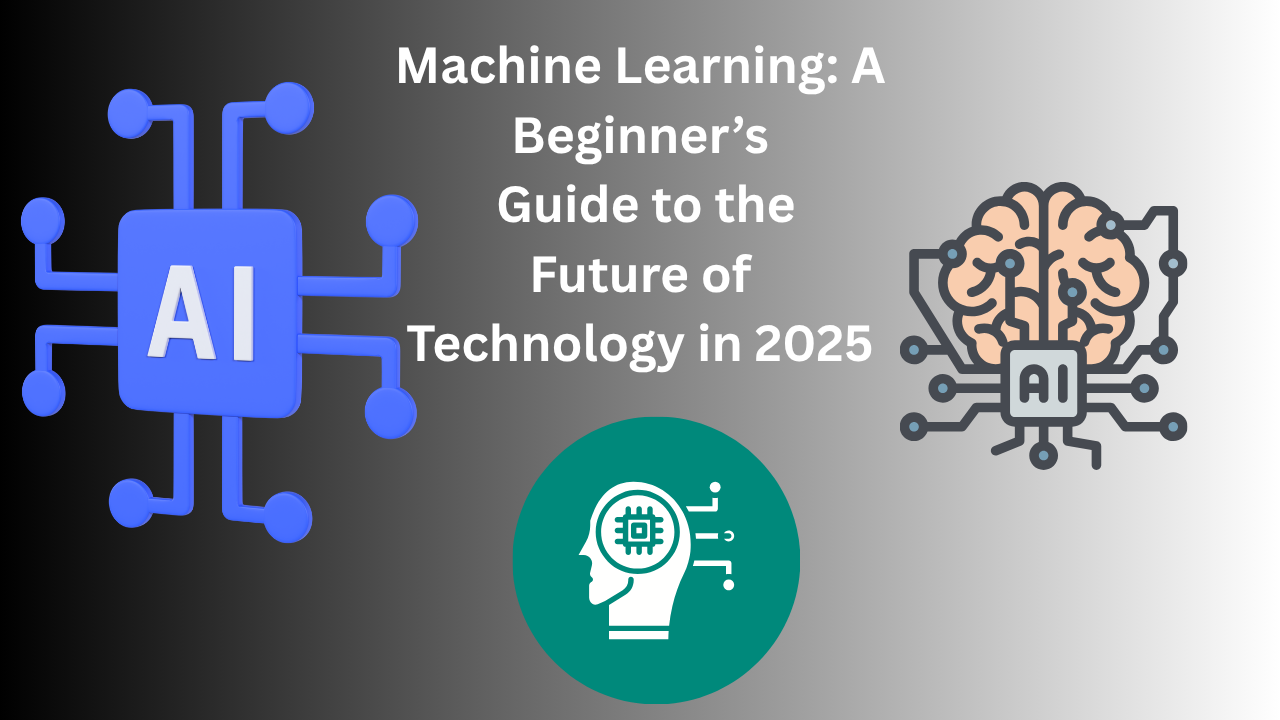Technology is evolving faster than ever, and one term you must have come across is Machine Learning (ML). From personalized recommendations on Netflix to voice assistants like Alexa and Siri, machine learning has become a part of our daily lives. But what exactly is machine learning, and why is it so important in today’s digital world? Let’s break it down in simple words.

Table of Contents
ToggleWhat is Machine Learning?
In the simplest form, Machine Learning is a branch of Artificial Intelligence (AI) that enables computers to learn from data and improve their performance without being explicitly programmed.
Think of it like this: instead of giving a computer step-by-step instructions, you provide it with a large amount of data. The machine then finds patterns, makes predictions, and solves problems on its own.
Example: When you shop online, you often see product recommendations. That’s machine learning analyzing your past purchases and suggesting what you might like next
How Does Machine Learning Work?
Machine Learning follows a simple process:
Data Collection – Large amounts of data are gathered (text, images, numbers, etc.).
Data Preparation – The data is cleaned and organized.
Training the Model – A machine learning model is trained with this data.
Prediction & Testing – The model makes predictions, which are then tested for accuracy.
Improvement – The model keeps learning and improving over time.
For example, if you want a model to recognize pictures of cats, you feed it thousands of cat images. Over time, it learns the unique features of cats (like whiskers, ears, and eyes) and can identify them accurately in new images.
Types of Machine Learning
.
Machine Learning is usually divided into three main categories:
1. Supervised Learning
The model is trained with labeled data (input and output are known).
Example: Predicting house prices based on size, location, and features.
2. Unsupervised Learning
The model works with unlabeled data and finds hidden patterns.
Example: Customer segmentation in marketing (grouping people by buying habits).
3. Reinforcement Learning
The model learns through trial and error, receiving rewards or penalties.
Example: Teaching a robot to walk or self-driving cars learning to navigate roads.

Real-Life Applications of Machine Learning
ML isn’t just a buzzword—it’s shaping industries worldwide. Here are some common applications you already use:
Healthcare: Disease detection, drug discovery, and patient monitoring.
Finance: Fraud detection, credit scoring, and stock market predictions.
E-commerce: Personalized recommendations and dynamic pricing.
Education: Smart tutoring systems and automated grading.
Transportation: Self-driving cars and traffic prediction.
Entertainment: Music and movie recommendations on Spotify and Netflix.
Why is Machine Learning Important?
Machine Learning is transforming the way businesses and individuals operate. Some of the key benefits include:
Automation: Reduces the need for manual work.
Better Decision-Making: Provides data-driven insights.
Personalization: Creates tailored experiences for users.
Efficiency: Saves time and resources.
Scalability: Can handle massive amounts of data easily.
Simply put, machine learning makes technology smarter and life easier.
Challenges of Machine Learning
While ML offers endless opportunities, it also comes with challenges:
Data Privacy Issues: Handling sensitive data securely.
High Cost: Requires advanced hardware and skilled professionals.
Bias in Data: Poor-quality data can lead to inaccurate results.
Complexity: Models can be hard to interpret and explain
The Future of ML
The future looks promising. Machine Learning will continue to drive automation, innovation, and smart decision-making. We may soon see:
Smarter healthcare solutions.
Fully autonomous vehicles.
More natural human-computer interactions.
AI-powered education for personalized learning.
With ongoing advancements, machine learning is set to revolutionize every sector of our lives.
Conclusion
Machine Learning is no longer just a futuristic concept—it’s happening now and shaping the world around us. From simplifying everyday tasks to solving complex global problems, machine learning holds immense potential.
If you’re looking to build a career in technology or want to understand the digital trends of the future, learning about machine learning is a great place to start. The possibilities are endless, and the journey is just beginning!
